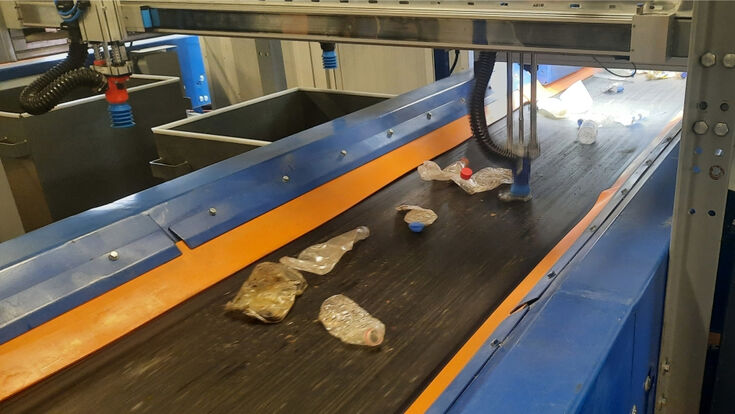Reclaim Waste Melbourne: Advanced Techniques for Efficient Liquid Waste Removal
Reclaim Waste Melbourne: Advanced Techniques for Efficient Liquid Waste Removal
Blog Article
Fostering Source Effectiveness and Environmental Management Through Liquid Waste Elimination Programs
In the world of environmental stewardship, the management of fluid waste stands as an important point where resource efficiency and environmental defense converge. With a lens of positive interaction and calculated insight, the landscape of fluid waste monitoring introduces a tapestry of obstacles and opportunities that bid us to discover the course in the direction of a greener and even more lasting future.
Relevance of Fluid Waste Elimination
The relevance of fluid waste removal depends on its vital duty in protecting ecological health and wellness and protecting public wellness. Liquid waste, if not effectively taken care of, can posture significant dangers to ecological communities, water resources, and human health and wellness. With efficient removal processes, damaging compounds such as contaminants, microorganisms, and chemicals are prevented from infecting the atmosphere and causing detrimental results.
Appropriate fluid waste elimination also aids in stopping the spread of diseases and lowering the capacity for groundwater contamination. By safely dealing with fluid waste, the danger of waterborne illnesses and pollution-related health and wellness issues is dramatically reduced - Reclaim Waste Melbourne. In addition, efficient elimination practices add to maintaining the general cleanliness and appearances of neighborhoods, therefore enhancing the top quality of life for residents
Additionally, liquid waste removal plays an essential function in sustaining sustainable advancement and making certain compliance with ecological laws. By adhering to proper waste monitoring protocols, services and sectors can decrease their ecological impact and show company duty. Ultimately, buying robust liquid waste removal programs is vital for advertising ecological stewardship and cultivating a much healthier, more secure future for all.

Advantages of Efficient Disposal
Reliable disposal of fluid waste not just safeguards environmental health and public health yet likewise yields numerous advantages that prolong beyond immediate control procedures. Through procedures like reusing and energy recovery, beneficial resources can be extracted from fluid waste, promoting sustainability and reducing the pressure on raw materials. Overall, the advantages of effective liquid waste disposal are complex, including environmental security, resource performance, and economic benefits.
Technologies for Waste Treatment
Making use of sophisticated modern technologies for waste treatment plays a crucial function in ensuring the efficient management and risk-free disposal of fluid waste. One of the essential modern technologies employed in fluid waste therapy is biological therapy.
Advanced oxidation processes (AOPs) have actually obtained popularity for their capability to degrade consistent natural contaminants in fluid waste through the generation of extremely responsive hydroxyl radicals. Membrane layer technologies like reverse osmosis and ultrafiltration work for separating pollutants from fluid waste streams. Additionally, thermal therapy approaches such as incineration can be employed for the total devastation of unsafe elements in fluid waste. On the whole, the integration of diverse therapy modern technologies ensures environmentally friendly and detailed monitoring of here are the findings fluid waste.
Function of Laws and Conformity
In the realm of liquid waste management, adherence to regulatory frameworks and compliance standards is paramount for safeguarding ecological wellness and sustainability. Rules play a crucial duty in controling the correct handling, therapy, and disposal of liquid waste to avoid harm to communities and human health. By establishing clear standards and criteria, regulative bodies read the article guarantee that companies and individuals entailed in fluid waste administration operate in an eco accountable way.
Compliance with these laws is not just a legal need yet likewise an ethical commitment to secure the environment for future and present generations. It involves implementing finest techniques in waste collection, therapy, transportation, and disposal to reduce ecological effect and advertise resource performance. Non-compliance can lead to penalties, lawsuit, and reputational damage for companies, highlighting the significance of upholding governing standards.

Future Trends in Waste Monitoring

One more essential trend in waste management is the fostering of sophisticated data analytics and expert system to optimize waste collection courses, enhance sorting processes, and boost general operational performance. These modern technologies allow waste administration companies to make data-driven choices, causing cost financial savings and ecological benefits.
In addition, there is an expanding emphasis on the growth of decentralized waste administration systems, such as onsite treatment centers and mobile waste processing devices. These systems use flexibility and scalability, enabling a lot more efficient waste handling in varied atmospheres.
Verdict
To conclude, fostering source efficiency and ecological security via liquid waste elimination programs is important for sustainable advancement. Efficient disposal techniques, progressed innovations for waste therapy, and stringent laws play essential duties in reducing ecological impact. Looking helpful site in advance, continuous advancement and improvement in waste administration techniques will be necessary for dealing with the expanding difficulties of fluid garbage disposal.
In the realm of environmental stewardship, the management of liquid waste stands as a critical point where source efficiency and ecological protection converge (Reclaim Waste).Using sophisticated modern technologies for waste treatment plays a vital duty in ensuring the efficient administration and secure disposal of fluid waste.In the realm of liquid waste administration, adherence to regulative structures and conformity criteria is paramount for protecting environmental health and wellness and sustainability.In final thought, cultivating source performance and ecological defense through liquid waste removal programs is essential for sustainable development. Looking ahead, continuous development and enhancement in waste administration methods will be vital for attending to the expanding difficulties of liquid waste disposal
Report this page